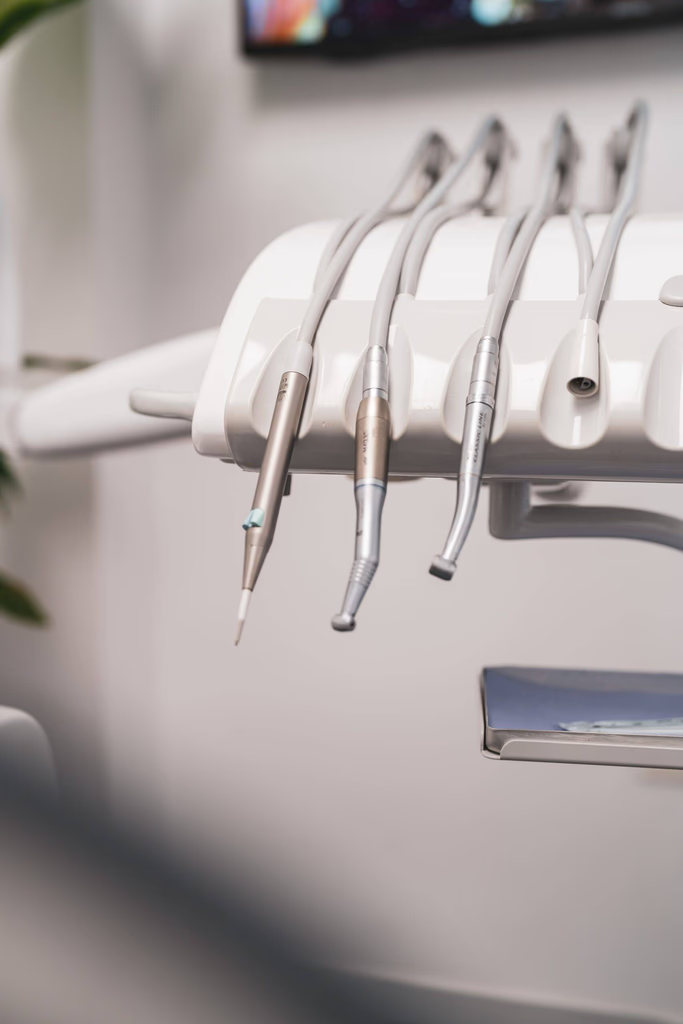Interdental cavities are one of the most common dental problems and often one of the hardest to detect with the naked eye. They form in the spaces between the teeth, where food particles and bacteria can easily accumulate.
At Inima Dental Clinic, we’ll explain what interdental cavities are, how to prevent them, and the most effective treatments to combat them.
What Are Interdental Cavities?
Interdental cavities are cavities that develop in the contact areas between the teeth. These areas are particularly vulnerable because a toothbrush often cannot reach the spaces between the teeth. This makes it easy for plaque and food particles to build up. If not properly cleaned, these bacteria begin to break down tooth enamel, leading to the formation of cavities.
Why Do Interdental Cavities Occur?
There are several factors that can contribute to the development of interdental cavities:
Lack of Interdental Hygiene. Failing to clean the spaces between the teeth allows bacteria and food debris to build up, encouraging cavity formation.
High-Sugar and Starchy Diet. Foods rich in sugars and processed carbohydrates feed the bacteria in the mouth, which produce acids that erode tooth enamel.
Insufficient Fluoride. Fluoride strengthens enamel, making it more resistant to bacterial acids. Insufficient fluoride in water or toothpaste can make cavities more likely.
Dental Anatomy. People with very close or crowded teeth are more prone to developing interdental cavities, as cleaning these areas is more challenging.
How to Prevent Interdental Cavities
The good news is that interdental cavities can be prevented with good hygiene habits and regular dental visits. Here are some practical tips:
Do Interdental Cleaning Daily. Using tools like dental floss, interdental brushes, or a water flosser is essential for effectively cleaning the spaces between your teeth. Interdental hygiene removes food debris and plaque in areas a toothbrush cannot reach.
Choose a Fluoride Toothpaste. Fluoride helps strengthen enamel, making it more resistant to acids. Be sure to use fluoride toothpaste, and consider fluoride mouthwashes as a supplement.
Limit Sugar Intake. Reduce the consumption of sugary foods and drinks, especially between meals, as sugar feeds the bacteria responsible for producing enamel-damaging acids. If you consume sweets or sugary drinks, try to brush your teeth or rinse your mouth afterwards.
Visit the Dentist Regularly. Regular dental visits allow cavities to be detected in their early stages when they can still be treated without deeply affecting the tooth. At our clinic in Marbella, we recommend visiting the dentist at least twice a year for check-ups and professional cleanings.
Treatments for Interdental Cavities
If you already have an interdental cavity, there are different treatment options depending on the severity of the damage. The most common treatments include:
Fillings or Restorations: For mild to moderate interdental cavities, the dentist can clean the affected area and fill it with materials like composite resin or amalgam. This procedure, also known as a filling, restores the function and appearance of the tooth.
Inlays or Crowns: If the cavity has destroyed a large portion of the tooth, an inlay or crown may be necessary to restore its structure and function. These treatments require partial or full tooth reconstruction to ensure durability.
Root Canal Treatment: When the cavity has reached the tooth’s nerve (pulp), a root canal may be required. This procedure involves removing the damaged pulp, disinfecting the root canal, and sealing it to prevent future infections. It’s an effective way to save the tooth when the cavity has progressed significantly.
Tooth Extraction: In extreme cases, when the cavity has completely destroyed the tooth structure, extraction may be necessary. After extraction, replacement options such as implants or dental bridges are typically offered.
Interdental cavities can be difficult to detect and treat. The good news is that they can be prevented with an adequate oral hygiene routine and regular dental check-ups. At our dental clinic in Marbella, we are here to help you maintain a healthy, cavity-free smile. If you suspect you have an interdental cavity or want to improve your oral hygiene, contact us for a consultation.
Contact us and visit our dental clinic in Marbella to book your appointment.





